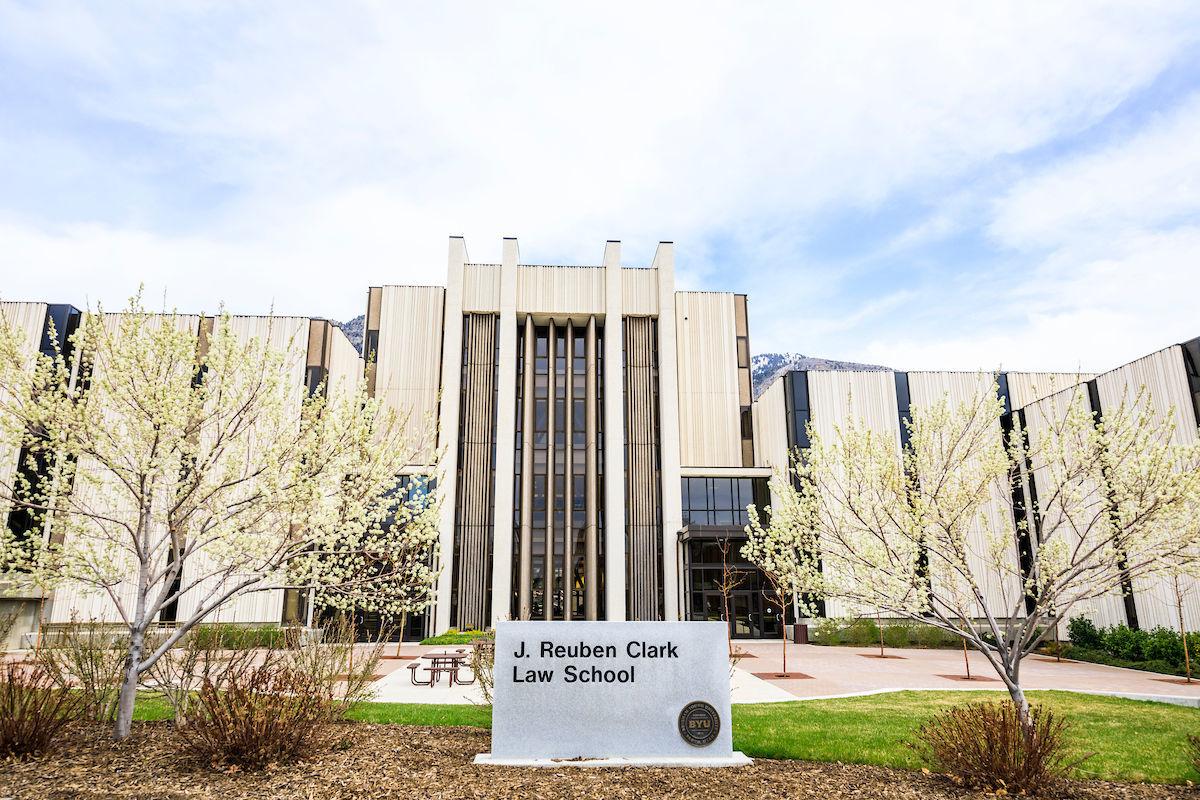
“Justices side with Colorado baker on same-sex wedding cake,” read one headline from the Associated Press last summer. “Ousted UI Christian student group files lawsuit against university in religious liberty case,” reads another headline, this one from the Des Moines Register.
With religious freedom on center stage — particularly as it relates to LGBT rights — the upcoming Religious Freedom Annual Review hosted by BYU Law seeks to help attendees feel confident and empowered to discuss religious freedom, according to Elizabeth Clark.
Clark, the associate director for BYU’s International Center for Law and Religion Studies, said BYU Law started hosting the review six years ago. It initially started as a small law event attended only by lawyers, but Clark said the event has ballooned over time.
“There’s been so much interest in religious freedom issues, and these have become so topical over the last six years that we find a lot of people who are just really curious, who hear a lot of things and don’t know quite what to make of it all and want to educate themselves,” Clark said.
According to the review’s website, event topics include “why religious freedom matters, how we can find common ground with LGBT rights, religious freedom in the media and how to be a leader in promoting religious freedom in your community.”
This year’s topic is “Religious Freedom in a New Generation.” Clark, who has been in charge of the review for the past three years and involved with it since its conception, said the topic was chosen in light of the change of attitudes toward religious freedom in the 20 years she’s been in the field.
She said religious freedom used to be an idea embraced by all, but now it’s an idea that many associate with Christianity and bigotry.
“I think it gives us new opportunities to really think about, ‘Well, what is religious freedom?’ (and) to communicate it,” Clark said. “And that’s what I’m hoping with this — to sort of communicate and get better at communicating, particularly with the younger demographic, on religious freedom and why it matters.”
Clark said she wants to directly address many questions people have about religious freedom — both from the political right and the political left — including questions about how religious freedom interplays with LGBT and women’s rights.
“We’re just trying to make it a civil, thoughtful, engaging conversation so that people can learn and hear a lot of different perspectives on these issues,” Clark said.
Part of this conversation includes a session by Tolerance Means Dialogues, which hosts “public discussions designed to bring together students and thought leaders to find more constructive approaches to living together in a pluralistic society,” according to its website. These discussions have taken place at various universities across the country.
Professor Robin Wilson from the University of Illinois College of Law launched Tolerance Means Dialogues and will present at the BYU session. She said the discussions try to help people understand that religious groups and the LGBT community aren’t pitted against each other in a bitter war.
“These communities are making parallel claims. They want the same thing,” Wilson said. “LGBTQ people are saying, from what I can hear, ‘I can’t be myself unless I can be openly and fully myself.’ Well, religious people are saying the same thing. So that’s one of the insights that I think is really worth surfacing and reminding ourselves about.”
She added that the dialogues exist to fight back against the negativity portrayed in society and the news media that emphasize the conflict between religious groups and the LGBT community.
“I think we have to come into dialogue publicly and prove that the culture war isn’t some interminable, unending thing, and the best evidence of that is ourselves,” Wilson said. “So in some sense, the dialogue is a push against our culture and the way we present things in our culture as always about conflict.”
As part of the session, students were invited to submit a 500-word essay about what tolerance means to them on the Tolerance Means Dialogues website. The two selected winners will receive a $750 scholarship and speak at the session, which will take place on June 20 at 2:45 p.m. Students who attend the session will also have the opportunity to win a $250 scholarship for tweeting about the event.
The Religious Freedom Annual Review will take place from June 19-20 in the BYU Conference Center. Online registration is open to anyone who would like to attend and is free for BYU students and faculty.




